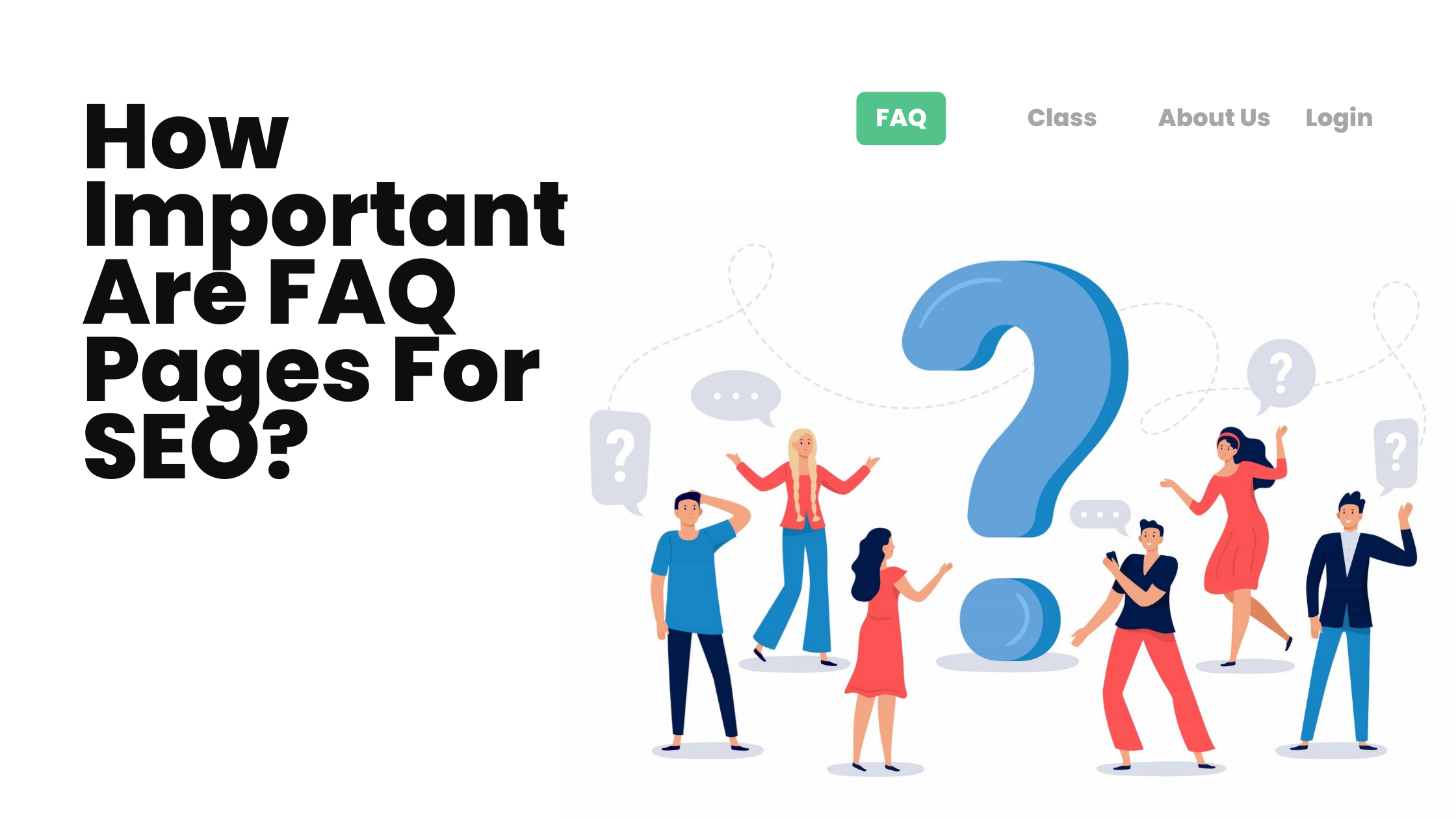FAQ pages are one of the most important elements in the digital marketing world. They provide a great opportunity for you to address common questions about your product or service, which can help improve its quality and sales potential. Take the help of an expert, like hiring a professional SEO company in Ahmedabad to get the right guidance.
Why create an FAQ page?
One of the biggest reasons to create an FAQ page is to answer common questions. This way, users can get answers when they search for them and don’t need to spend time figuring out how your company works or where to find a specific product.
It also addresses any concerns that arise from your customers before they visit the Contact Us page, which could potentially increase your bounce rate and decrease conversions if not handled properly.
Another benefit of having an FAQ section on your site is that it reduces the number of people who leave because they weren’t able to find what they needed in one location. Having all of this information in one place makes it much easier for visitors without coming off as spammy or overbearing (and can help prevent those dreaded 404 errors).
How to create SEO-friendly FAQ pages?
- Use keywords in the page title. This is a no-brainer. The title should describe what the page is about so that people who land on it will immediately know why they are there and what they can expect to find.
- Use keywords in your meta descriptions. Make sure you use relevant keywords in this section of your FAQ pages too, as this can help search engines understand what your content is about and rank it appropriately for related searches.
- Use keywords in meta tags (keywords, description). If you don’t have time for extensive research on which keywords are most relevant for each individual piece of content on your website, then try using software like SEMrush or Keyword Tool to get recommendations based on some basic keyword research principles such as:
- Content length (longer content tends to have more search volume)
- Synonyms (the more synonyms you include, the wider variety of readership)
Group the most common user queries
The next step is to group questions into categories. This will help you categorize the most common user queries in a way that makes it easier for readers to understand and find what they’re looking for.
You can group your FAQs by topic, by location (if applicable), by frequency of use, or even by type of question (e.g., How do I get started? vs. Can I customize this template?). The key here is making it easy for users to find their answers without having to scroll through pages of content.
If you’re using a plugin like Yoast SEO or All-in-One SEO Pack, both allow you to create custom taxonomies for your posts and pages so that when you create an FAQ with similar questions grouped together in one post or page—instead of scattered around various pages throughout your site—you’ll be able to automatically tag those posts using those custom taxonomies so that Google knows which keywords are associated with each set of frequently asked questions on your site.
Give complete answers to those questions
In order to help users find the answers they are looking for, you need to give them complete answers. The answer should be clear and easy to find. This includes:
A clear structure – Use headings and subheadings, bullet points and tables of contents in order to guide the user where they need to go.
Provide the answer – Make sure that your content answers every one of their questions!

Use the right words – Make sure you use the appropriate language that is easy to understand. Provide evidence – Use examples and case studies to demonstrate your points and show why they are important.
Be consistent – Make sure that your content is consistent throughout. This will help users to find what they are looking for quickly and easily.
Use simple language – The best content is always written in a way that makes it easy to understand. Avoid complicated words, long sentences and complex concepts. This will help you to get your message across quickly and effectively.
Provide the right content – Make sure that your website provides all of the information that users need.
This includes: Prices – Provide a list of prices for each service you provide, including any costs that might be included in these prices.
Qualifications and experience – Be clear about who does what and how long they have been doing it for.
Contact details – Include an address, phone number and email address so that people can get in touch with you quickly and easily.
Format FAQ pages
To SEO a FAQ page, your first step is to format it. You want to use a table for the answers and make sure that every answer has a heading and sub-heading.
This makes it easy for users to see what they’re looking for by scanning down the page and also makes it easier for search engines to find the most important keywords.
There are some additional elements you can add to help search engines understand the content of your site:
- Use images where possible! People love visuals, so don’t be afraid of using photos or videos throughout your site.
- Make headings bolded or capitalized so they stand out in searches (this also helps with readability).
- Use bullet points when listing items like “what are some things I need to know about this product” because these will show up nicely on Google when someone searches something like “what do I need before buying this product?” Then all you have left is adding Schema markup tags which tell Google what kind of content is on each part of your site so they can better rank it appropriately within search results pages (SERPs).
Optimize the title tag and meta descriptions
- The title tag: This is the most important part of your site. It’s the first thing people see when they search for you, so make sure it’s optimized to include keywords that are relevant to your business and/or industry.
- The meta description: This is a brief blurb about what visitors will find on the page and should be used as an opportunity to entice them into clicking through (and hopefully reading more of) your content. Keep in mind that Google often uses this snippet as an advertisement, so make sure it’s engaging enough to make someone want more information from you!
Add FAQ Schema
FAQs are a great way to help your users quickly find the information they want. They can also be used as a tool for optimizing your site for search engines, helping you improve your overall SEO performance.
To add FAQ schema to your website or blog, all you need is a simple code snippet that will allow search engines like Google and Bing crawl through your content and index it appropriately. The next step is adding some basic information about each question in your FAQs using structured data markup.
This allows bots to understand what type of content is being displayed on the page, which results in better crawling efficiency and improved ranking when people search for topics related to those questions (e.g., “How do I use WordPress?”).
Conclusion
In conclusion, FAQ pages are an important part of your website and they should be taken care of. You can use them as a way to engage with your customers and improve their experience on your site. Digital45 help you rank higher in search engines because they have lots of content that Google loves!




